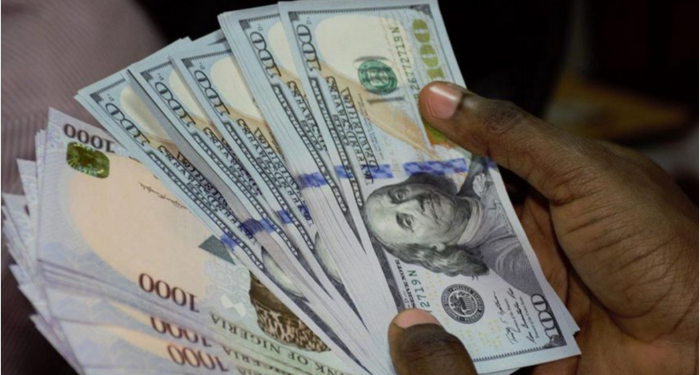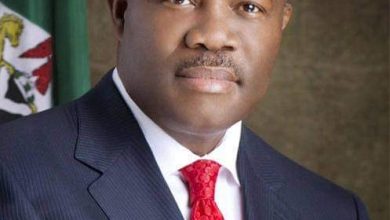Naira depreciation: Analysts offer strategies for volatility mitigation

Financial analysts are advocating for a re-evaluation of policies to safeguard the Nigerian Naira amid escalating forex rates, despite efforts by the Central Bank of Nigeria (CBN) to stabilize its value.
The recent decline in the Naira’s value across official and parallel markets has prompted suggestions from financial experts to mitigate currency volatility and prevent further depreciation.
The CBN had announced a series of measures aimed at enhancing transparency and stability in the foreign exchange market while addressing malpractices.
However, while the analysts acknowledge the positive aspects of the CBN’s recent policies aimed at managing pressures in the foreign exchange market, they highlight that these measures fail to directly address the fundamental issue of limited supply.
Analysts interviewed by Nairametrics in response to the Naira’s sharp decline following exchange rate harmonization propose reassessing the government’s foreign exchange management strategy.
News continues after this ad
They advocate for shifting towards a managed float system to allow flexibility in implementing initiatives to bolster foreign exchange reserves, such as boosting oil production, enhancing agricultural exports, and incentivizing foreign remittances.
Recommended reading: Official exchange rate settles at N1551.24/$1 as P2P market crosses N1800/$1
Recent Performance of Naira
Nairametrics reported that the foreign exchange turnover saw a significant rise of 76.61% to $117.32 million, coinciding with the Nigerian naira’s strengthening against the dollar in the official market on Tuesday, February 20th, 2024.
News continues after this ad
However, despite this improvement, the intra-day high remained elevated, reaching N1,701 against the dollar by the close of trading.
- The exchange rate settled at N1,551.24 to a dollar at the end of the business day.
- In contrast, the exchange rate experienced a decline in the black market, slipping to N1,700/$1, representing a 2.65% decrease compared to the previous day’s rate.
- The Great British Pound (GBP) closed at £1/N2120, a decline from £1/N2,040 recorded the previous day, this marks a notable decrease of 3.77% compared to the N2,040 rate recorded the previous day.
- In the cryptocurrency market where forex is sold using stablecoins, the Naira also settled at N1,802.44/$1.
What market experts are saying:
Financial analyst at FSL Securities Limited in an exclusive interview with Nairametrics, expressed concerns regarding the recent liberalization of the foreign exchange market by the Central Bank of Nigeria (CBN).
Mr. Victor Chiazor, Head of Research and Investment, FSL Securities Limited he believe that the CBN were hasty in their decision to liberalise the foreign exchange market.
Chiazor noted that the CBN’s approach lacked comprehensive consideration of the market’s dynamics, particularly in light of the persistent low supply.
He highlighted that while recent policies implemented by the CBN aimed to alleviate pressures in the FX market, they failed to effectively address underlying supply constraints.
Chiazor suggested that authorities might need to reassess their stance on foreign exchange management, potentially reverting to a more tightly managed floating exchange rate system.
This approach, he explained, would afford policymakers the opportunity to concentrate on enhancing supply-side factors affecting FX, including increasing oil production, bolstering agricultural export revenues, and fostering foreign remittances.
He emphasized the necessity for substantial and consistent inflows of FX, along with continuous augmentation of foreign reserves, for the sustainability of a free-floating Naira exchange rate.
Professor Uche Uwaleke, Nigerian First Professor of Capital Market and the Director of the Institute of Capital Market Studies at the Nasarawa State University Keffi who voiced concerns regarding the current state of the exchange rate, in an exclusive chat with Nairametrics suggested that presidential intervention is necessary.
He highlighted that the increasing FAAC (Federal Account Allocation Committee) receipts are partially accountable for this situation.
To address this issue, he recommends that the President convene an emergency meeting of the Council of States to collaborate with governors on strategizing how to manage excess FAAC receipts resulting from the devaluation of the naira.
Uwaleke emphasized the importance of legislative action in this regard, advocating for the Executive to propose a Bill for a “By-Nigerian Law” and commit to enforcing its provisions.
He highlighted a potential solution to mitigate the distortionary effects of FAAC receipts on the economy, suggesting the adoption of a separate fixed exchange rate, perhaps at N800/dollar as proposed in the 2024 budget, specifically for the monetization of crude oil sales.
- “This approach would essentially establish a dual exchange rate system, with the designated rate also applicable to external debt service.
- Meanwhile, all other transactions would continue to utilize the NAFEM rates,” he said.
Uwaleke noted that he has consistently opposed the idea of floating the naira due to the fundamental weaknesses within the economy that cannot adequately support such a move.
He pointed out that crude oil sales continue to play a significant role in generating foreign exchange receipts.
Regarding the current situation, he acknowledged that the sudden unification of exchange rates, along with the subsequent devaluation of the naira and rising inflation, has made an increase in the Monetary Policy Rate (MPR) unavoidable.
However, he suggested that the Monetary Policy Committee (MPC) should opt for an incremental approach rather than implementing drastic measures.
Also, in an interview with Nairametrics, Mr. David Adonri, Executive Vice Chairman of Hicap Securities Limited, attributed the current volatility and depreciation of the currency to a significant supply-demand imbalance.
Adonri emphasized that bridging the supply gap hinges on increasing crude oil exports to meet OPEC quotas and cater to domestic refinery demands.
Additionally, he underscored the importance of diversifying activities that contribute to foreign currency supply and boosting domestic production to reduce reliance on imports.
Adonri cautioned against the overuse of monetary policy tools, noting their diminishing effectiveness in curbing demand pressures for foreign currency.
Instead, he advocated for the establishment of a transparent, credible, and market-driven foreign exchange market by the monetary authority.
Adonri criticized the current forex market for its inability to achieve exchange rate convergence or eliminate illicit transactions.
The Chief Executive Officer, of Wyoming Capital and Partners, Mr. Tajudeen Olayinka said that the CBN should understand that the black market they are chasing is a different market for different customers.
Olayinka noted that it would be difficult to unify the two different markets without eliminating the differences in the two markets.
- “Black market is a free fund market or market that is free from documentation. Unless you can create a convergence from those differences, you cannot truly unify the exchange rate in the real sense of it,” he said.






